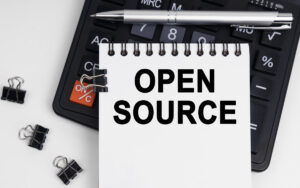If a company wants to get anything significant done, they’re best off setting up a project plan. A project helps organize the task, setting up parameters, a time schedule, a roster of participants, goals, etc. Too much time and resources get lost if things are disorganized.
However, even well-defined projects can go awry. You need a good project manager to keep things on course. This article explores the role of project management, including a project manager job description, project manager roles, necessary project management skills, salary data, and other valuable tidbits.
But let’s start things with a project manager description, then move on to project manager responsibilities and roles. We’ll soon see that managing project parameters and variables can be a challenging but rewarding task.
What is a Project Manager?
A project manager is the go-to person for the company’s primary goals. They implement the vital, necessary plans and manage the project teams. Project managers a project from inception to conclusion.
Project manager duties include planning, executing, controlling, monitoring, and finally closing the project. They’re the head honcho, the team leader, and the go-to person when things go wrong.
We’ve established the project manager’s overarching role, but it’s time to dig into more detail about specific project manager roles and responsibilities.
Read More: Understanding Project Management: A Comprehensive Guide
Project Manager Roles and Responsibilities
So we know that project managers lead projects. That’s great (and relatively obvious), but what about specific project manager duties? First, let’s examine project manager roles and responsibilities in detail.
Projects are typically broken down into a five-stage “life cycle,” and project managers have responsibilities in each of these phases:
1) Initiating
2) Planning
3) Executing
4) Monitoring and Controlling
5) Closing
In detail, the role of project management is broken down for each phase. Any competent project manager should be expected to tackle all these tasks.
Initiating
The project manager begins by defining the project’s objectives, scope, and purpose. In addition, they identify the key stakeholders, discuss shared expectations, and get the authorization needed to start the project. Here are some essential questions the project manager must address in this phase:
1) Why does this project matter?
2) What specific issue or problem are we trying to resolve?
3) What outcome are we working towards?
4) What are our criteria for defining success?
5) Who are the project’s stakeholders?
6) How will the project be funded?
7) Will anyone else be impacted by this project? If so, who are they, and how?
8) What are the project’s constraints and requirements?
9) What falls within the project’s scope, and what lies outside it?
10) Has anyone tried a project like this before? If so, how did it turn out? Are there any valuable takeaways that we can incorporate into the new project?
Once the project manager successfully addresses these questions, the project can be chartered and officially assigned.
Planning
Once the project charter is approved, the project manager works with the appropriate stakeholders to compose an integrated project plan that meets the outlined goals. The plan acts like a roadmap, helping the project manager oversee the scope, cost, risk, quality issues, timeline, and communications. Also, the project manager should spell out the key deliverables and milestones and identify the tasks that must be finished. Note that the planning stage continues throughout the project’s life, and the project plan is a living document that keeps changing and evolving.
Executing
Here’s the phase where the team gets to work on the project, and the project manager takes on the leadership aspect of the role. The project manager assigns the work and ensures all tasks are completed as scheduled. The project manager also:
1) Protects the team from distractions
2) Facilitates issue resolution
3) Leads the team through project changes
Monitoring and controlling
Although monitoring and controlling falls in part four of the sequence, it actually starts at the project’s beginning and continues throughout its planning, execution, and closing. The project manager’s role in this phase includes the following:
1) Monitoring the project’s progress
2) Managing the project’s budget
3) Ensuring the team reaches the project’s key milestones
4) Comparing the team’s actual performance to what was planned and scheduled in the project charter
Closing
At this point, the project is winding down. Therefore, the project manager must ensure that all the steps to reach the final result have been completed. Project manager duties in this phase:
1) Meet with the client and get a formal sign-off on the project, verifying that it’s complete.
2) Release any resources that are no longer needed for the project. This includes funds and personnel.
3) Review the work of any partners or third-party vendors to close their contracts and pay their invoices.
4) Archive the completed project files for future reference and use.
Read More: Mastering Project Manager Skills: A Comprehensive Guide
Role of Project Management: What Are the Most Needed Project Management Skills?
Specific skills are essential to complete the expected project manager responsibilities. Here’s a collection of the crucial project management skills (both hard and soft) and other requirements.
1) Familiarity with tools that perform day-to-day operations, such as Microsoft Office Suite (Excel, PowerPoint, Word, etc.)
2) Ideally, a degree in a related IT field. Many colleges and universities even offer project management courses
3) Strong leadership qualities, including some experience in managing teams
4) Good communication skills, including writing, negotiating, and conflict resolution
5) The ability to work independently
6) A knack for solving problems
7) Knowledge of project management techniques and principles (easily gained through college classes or certification courses)
8) Decision-making ability
9) Budget management
10) Setting goals and priorities; organization
11) The relevant technical skills. The exact skills depend on the type of company the project manager works for and what technical aspects come into play. For example, if the project involved cloud migration, it would be wise for the project manager to be familiar with cloud computing fundamentals.
A Look at Project Manager Salaries
Project managers have a lot of responsibility, so they are well compensated for their efforts. For example, Glassdoor.com reports that project managers in the United States make a yearly average of $84,992. Minimum salaries hover around $53,000; the highest range hits $137,000.
The precise figure varies and is subject to variables such as years of experience, hiring company, and geographical location.
A Few Project Manager Resume Tips
Conventional wisdom says you should tailor your resume to fit the job regardless of the position you’re applying for or the industry you’re trying to enter. You must know your audience and appeal to them on some level.
When an organization posts an opening for a role of project management, they tell the world, “We have an issue and are looking for someone to be the answer!” That’s why the resume is your version of advertising copy, and the product is YOU. So gear your language to the reader and show why you’re the solution to their dilemma.
Resumes typically list the candidate’s work experience, where they worked, for how long, and what they did. However, project managers are judged on their projects and the results. Therefore, focus less on listing the different places you worked and more on the successful projects you led and the deliverables. For example, how did the successful project positively impact the company? Did the project under your guidance increase sales or save the company money? Perhaps both?
And remember to use concrete figures. For example, we previously mentioned projects saving money, but rather than saying, “I led this project that saved the company a considerable amount of money,” say, “I led this project that cut operating expenses by 22 percent. Recruiters want to see specific, hard data and quantifiable amounts.
If you’ve taken job-relevant courses, whether online instruction or classes on-campus, or completed certifications and bootcamps, list them! And remember to call out your educational background, especially as it pertains to project management.
Finally, don’t forget to call attention to the fact that you’re human. Yes, that sounds odd, but think about it. An effective leader relates to people on an emotional and social level. You’re not just a collection of job titles, successful projects, and relevant certifications; you’re someone with the interpersonal skills and empathy to effectively lead a team and keep morale high.
Is Being a Project Manager Stressful?
At different stages of a project, a good project manager will be required to:
1) Assemble a good team and keep them happy and productive
2) Communicate with fellow team members
3) Communicate with management and stakeholders
4) Identify issues and resolve them
5) Keep the project within the budget, especially during tight economic times
6) Oversee how team members are spending their time.
So, what do you think? Does it look like the role of project management causes stress?
Spoiler alert: Yes. Yes, it does.
That’s why project managers need to be thoroughly familiar and comfortable with the project management process and use well-developed time management skills to manage the team well and bring the project in on time and within budget.
Stress is inevitable, especially in leadership positions. But advance knowledge, careful preparation, and a well-defined set of skills go a long way towards mitigating that stress.
Read More: Project Management Qualifications
The Importance of a Project Manager
Projects keep a business moving forward, but projects are accomplished by people, and people need guidance to one extent or another. A good project manager has the skills, the talent, the vision, and the know-how to ensure the project gets done well and on-time. Projects are too essential to simply allow them to drift along without a guiding hand.
Would You Like to Become a Project Manager?
You can be that guiding hand! If you’re interested in changing careers to take on a project management role or are already on that career trajectory but want to upskill, consider this comprehensive project manager certification course offered by UMass Amherst in collaboration with Simplilearn.
The course consists of online interactive classes and real-world capstone projects and is aligned with PMI-PMP® and IASSC-Lean Six Sigma. In just six months, you will gain valuable skills such as:
- Agile Management
- Customer Experience Design
- Design Thinking
- Digital Transformation
- Leadership Skills
- Lean Six Sigma Green Belt LSSGB
- Project Management
- Project Risk Management
Don’t delay. Sign up for this outstanding certification class and get your project management career on the right track. Join up today!
You might also like to read:
10 Tips on How to Increase Productivity in the Workplace
How to Ace the PMP Exam? A Comprehensive Guide
5 Project Management Steps You Need to Know







